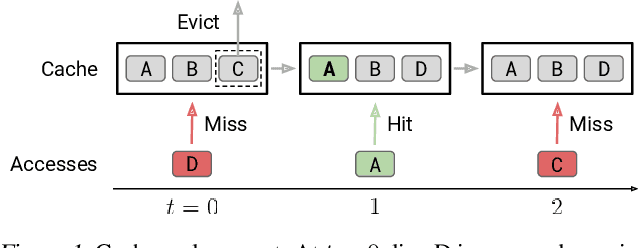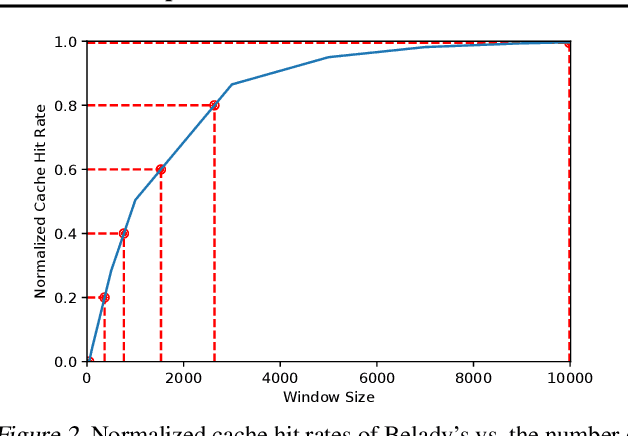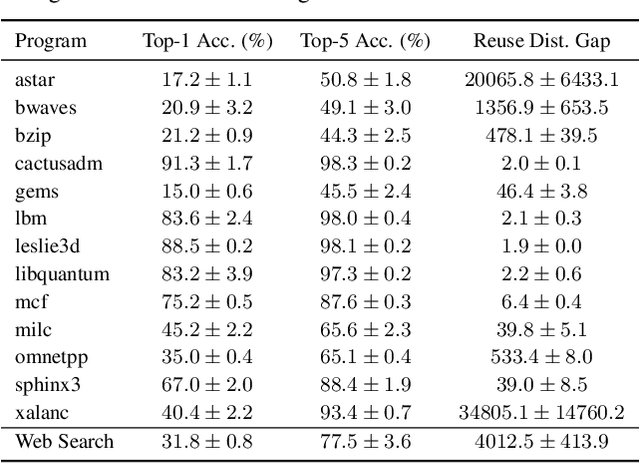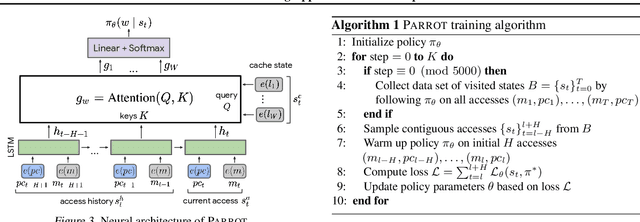An Imitation Learning Approach for Cache Replacement
Paper and Code
Jul 09, 2020



Program execution speed critically depends on increasing cache hits, as cache hits are orders of magnitude faster than misses. To increase cache hits, we focus on the problem of cache replacement: choosing which cache line to evict upon inserting a new line. This is challenging because it requires planning far ahead and currently there is no known practical solution. As a result, current replacement policies typically resort to heuristics designed for specific common access patterns, which fail on more diverse and complex access patterns. In contrast, we propose an imitation learning approach to automatically learn cache access patterns by leveraging Belady's, an oracle policy that computes the optimal eviction decision given the future cache accesses. While directly applying Belady's is infeasible since the future is unknown, we train a policy conditioned only on past accesses that accurately approximates Belady's even on diverse and complex access patterns, and call this approach Parrot. When evaluated on 13 of the most memory-intensive SPEC applications, Parrot increases cache miss rates by 20% over the current state of the art. In addition, on a large-scale web search benchmark, Parrot increases cache hit rates by 61% over a conventional LRU policy. We release a Gym environment to facilitate research in this area, as data is plentiful, and further advancements can have significant real-world impact.
 Add to Chrome
Add to Chrome Add to Firefox
Add to Firefox Add to Edge
Add to Edge